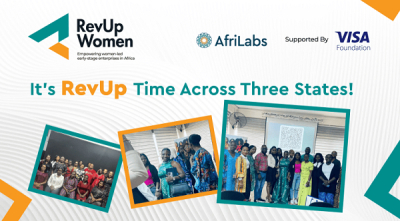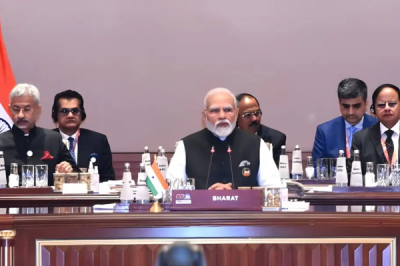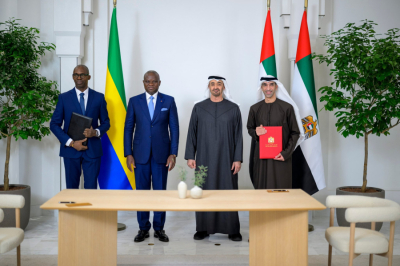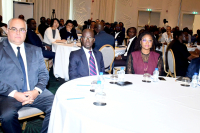-
Kenyan tech entrepreneur Daniel Litunya founded Dairy Sense to automate on-farm milk quality testing using artificial intelligence.
-
The solution claims 98% accuracy and targets revenue gains of up to 50% for dairy farmers while enabling early disease detection.
-
The technology has reached farmers across 47 counties in Kenya since the company’s launch in 2024.
Daniel Litunya (photo) works as a Kenyan computer scientist and technology entrepreneur. He founded and leads Dairy Sense, a company that helps African dairy farmers earn more from their activity by providing a fast and simple tool to check milk quality directly on the farm.
Founded in 2024, Dairy Sense aims to transform dairy farming in Africa by giving small-scale producers access to on-site technology that tests milk quality and detects herd diseases at an early stage. The company targets lower waste, higher farmer incomes and healthier livestock.
Dairy Sense relies on artificial intelligence-based milk quality tests. The solution delivers immediate results on the farm with accuracy comparable to laboratory analysis. The system also enables early detection of health issues such as mastitis, which limits disease spread and protects milk production. At the same time, the technology reduces post-harvest losses.
Dairy Sense extends its offering beyond hardware and software tools. The company also supports farmers through comprehensive training programmes that strengthen skills and technical knowledge. Farmers have adopted the solution across 47 counties in Kenya.
The start-up reports 98% accuracy in its milk quality tests. The company also says the solution can increase dairy farmers’ incomes by nearly 50% by reducing rejection rates and improving milk pricing.
Alongside his role at Dairy Sense, Daniel Litunya works as a backend developer at Kre8.Hub, a platform that provides African creatives with tools, resources and infrastructure to develop, scale and monetise their work.
Litunya also represents young people at the World Food Forum. He holds a degree in computer science from United States International University–Africa.
This article was initially published in French by Melchior Koba
Adapted in English by Ange J.A de Berry Quenum
The Mozambican Ministry of Communications and Digital Transformation is hosting the first National Conference on Digital Transformation this Wednesday and Thursday, February 11-12, at Indy Village in Maputo. The event will bring together government officials, private sector leaders, academia, and development partners to discuss priorities and implementation strategies for the nation’s digital roadmap. The ultimate goal is to build a more modern, citizen-centric public service.
RevUp Women, an initiative by AfriLabs supported by the Visa Foundation, is launching a new business development phase for 150 women in Nigeria. Over twelve weeks, participants in Abuja, Lagos, and Abia will engage in training, mentorship, and hands-on workshops through a hybrid support model. The program offers access to non-dilutive funding and will culminate in a final Demo Day.
MISSION NOVA, a pan-African television program specializing in robotics, artificial intelligence, 3D tech, and leadership, is currently seeking partner centers throughout Africa. Selected tech hubs and educational institutions will lead the identification, training, and support of national youth teams. Interested parties can apply via the online form until Wednesday, February 18, 2026, to help provide young talent with pan-African exposure.
-
India signed cooperation agreements with 23 countries, including six African states, on digital public infrastructure.
-
The partnership gives African governments access to 18 Indian digital platforms through India Stack Global.
-
A World Economic Forum study warned about cybersecurity and data privacy risks linked to large-scale DPI systems.
The Indian government announced on Friday, February 6, the signing of memoranda of understanding with 23 countries, including six African nations, to cooperate on digital public infrastructure (DPI). The agreements cover collaboration on digital identity, digital payments, data exchange, and public service delivery platforms.
The African countries involved include Sierra Leone, Tanzania, Kenya, Ethiopia, Gambia, and Lesotho. These states can replicate or adopt Indian digital governance platforms through India Stack Global, a portal that showcases India’s DPI solutions and facilitates their deployment in partner countries. The portal provides access to 18 core digital platforms.
These platforms include Aadhaar, a biometric digital identity system; the Unified Payments Interface (UPI), a real-time digital payments system; DigiLocker, a digital wallet for authenticated documents; e-Hospital, an online hospital management system; e-Office, a paperless governance platform; eCourts, which digitizes judicial procedures; and DIKSHA, a national digital learning platform.
The remaining solutions cover vaccination management, secure data sharing, digital health, public procurement, online administrative services, telemedicine, non-communicable disease monitoring, nutrition services, training and employment, public finance management, and infrastructure planning.
This initiative emerges as African countries increasingly view digital transformation as a driver of socio-economic development. Governments see DPI as a structural tool to improve public sector efficiency, strengthen financial inclusion, and expand access to essential services. In this field, India positions itself as a global reference, as its platforms serve about 1.3 billion people and attract growing international interest. UPI already operates in the United Arab Emirates, Singapore, Bhutan, Nepal, Sri Lanka, France, Mauritius, and Qatar.
India ranked 97th globally in the United Nations E-Government Development Index (EGDI) 2024, with a score of 0.6678 out of 1. The country ranked above the global average of 0.6382 and well above Africa’s average of 0.4247. In the Online Services sub-index, India recorded a score of 0.8184 out of 1, compared with a global average of 0.5754.
Systemic Risks Not to Be Underestimated
Growing interest in the digital public infrastructure model also raises concerns, particularly around cybersecurity. In a study published in October 2025, the World Economic Forum stated that as governments worldwide, especially in the Global South, seek to replicate similar architectures, the central challenge now concerns secure design rather than basic deployment.
The study highlighted several vulnerabilities observed in India. Public exposure of personal information belonging to officials triggered a large-scale data breach that affected more than 20 million citizens. The system also faced manipulation attempts using forged biometric media, while correlation attacks showed that linking Aadhaar to multiple public services could generate cascading privacy risks.
As cyber threats targeting critical infrastructure expand, the World Economic Forum assessed that securing digital public infrastructure has become essential. Even a potential cyberattack can undermine system integrity and availability while eroding public trust. The main identified risks include synthetic identity fraud, algorithmic bias, artificial intelligence–driven cyber threats, and data sovereignty challenges.
Isaac K. Kassouwi
- Gabon signed a memorandum of understanding with Presight, a subsidiary of UAE-based G42, to support digital government reforms.
- The partnership focuses on artificial intelligence, advanced analytics, and big data for public administration.
- Presight already works with African governments and trades on the Abu Dhabi Securities Exchange.
Gabon’s Ministry of Digital Economy signed a memorandum of understanding with Presight on Friday, February 6, on the sidelines of high-level discussions held in Abu Dhabi. Presight operates as a subsidiary of UAE-based technology group G42. The agreement aims to support the digital transformation of public administration and several strategic state services.
À Abu Dhabi, le Gabon a signé trois Mémorandums d’Entente stratégiques dans les secteurs minier, numérique et logistique.
— Présidence de la République Gabonaise (@PresidenceGA) February 6, 2026
Ces accords s’inscrivent dans la vision du Président de la République, S. E. @oliguinguema, visant à accélérer la transformation économique et renforcer… pic.twitter.com/hkZcUEH6bP
Authorities said the cooperation will focus on deploying artificial intelligence, advanced analytics, and big data solutions. The partnership seeks to improve public data management, optimize administrative services, and strengthen decision-support capabilities. Governments typically use such solutions to modernize state information systems, automate selected processes, and improve service delivery to citizens and businesses.
This partnership comes as digital transformation ranks among Gabon’s top policy priorities. DataReportal said Gabon recorded about 1.8 million internet users in 2025, representing nearly 71.9% of the population, while mobile connections exceeded 3.27 million. However, public service digitalization and nationwide data governance remain key challenges for improving administrative efficiency and supporting economic diversification.
Presight operates across multiple markets and has already formed partnerships with governments and institutions in Africa, including in Gambia and Côte d’Ivoire, on projects related to artificial intelligence, security, and public data management. The company trades on the Abu Dhabi Securities Exchange and positions itself as a major exporter of AI solutions developed in the United Arab Emirates.
With this memorandum, Libreville and Presight have laid the groundwork for cooperation expected to take shape in the coming months. Future operational agreements will define project scope, implementation modalities, and associated investments, as Gabon seeks to build a more coherent digital strategy aligned with its public sector modernization priorities.
Samira Njoya
-
Nigerian entrepreneur Chibuotu Amadi co-founded Paycrest to bridge cryptocurrencies and local fiat payments.
-
Paycrest enables instant crypto-to-fiat transactions using a liquidity provider network with reduced costs.
-
Amadi brings experience from Web3, fintech, and decentralized health platforms to the payment infrastructure.
Chibuotu Amadi is a Nigerian entrepreneur and software engineer. He co-founded and leads Paycrest as chief executive officer. Paycrest operates a payment infrastructure that seeks to make cryptocurrency transactions as simple and accessible as traditional payments for individuals and businesses worldwide.
Founded in 2024, Paycrest targets financial inclusion by enabling seamless payments between digital currencies and local fiat money. The company aims to lower transaction costs, simplify processes, and remove frictions linked to daily cryptocurrency use.
Paycrest offers open tools that allow users to send or receive payments in cryptocurrencies while settling or collecting local currency through standard bank accounts and wallets. Behind the platform, a network of liquidity providers converts value instantly between digital assets and traditional currencies at reduced cost. The tools target individuals, online merchants, enterprises, and decentralized finance projects.
Amadi has built multiple ventures over the past decade. In 2014, he founded SMSLeak, a Nigerian bulk SMS company that provides large-scale messaging solutions for advertising, sales promotions, product launches, and customer engagement.
In 2018, he co-founded Cura Network and served as chief technology officer until 2022. The company develops a decentralized global healthcare system that connects entities to collaborate and share data to promote, restore, and maintain health.
Amadi graduated from the University of Benin in Nigeria, where he earned a bachelor’s degree in computer engineering in 2016. He completed a software engineering internship at the Manipal Institute of Technology in India in 2015.
In 2019, Amadi joined Indian financial firm Inkredo as a full-stack developer. At the same time, he worked at Smarter.Codes, a software development company. In 2020, he joined U.S.-based ConsenSys, which provides tools for building Web3 solutions. From 2021 to 2023, he held a similar role at Gitcoin, a U.S. organization that funds community-driven projects.
This article was initially published in French by Melchior Koba
Adapted in English by Ange J.A de BERRY QUENUM
-
Ivorian entrepreneur Yoann Eddy Assohoun founded Tanga Africa to digitize visitor and crowd management for organizations and events.
-
Tanga Africa replaces manual visitor logs with automated digital tools that improve security, tracking, and data analysis.
-
Assohoun combines entrepreneurship with senior technical roles across African and international tech firms.
Yoann Eddy Assohoun is an Ivorian software developer and entrepreneur. He founded and leads Tanga Africa, a technology company that specializes in digital visitor and crowd management for organizations and events.
Founded in 2024, Tanga Africa targets security firms and organizations that seek to modernize visitor reception across multiple environments, including offices, hospitals, schools, and professional or cultural events. The company offers a digital platform that replaces paper registers and manual processes with automated tools.
The solution enables digital visitor registration and delivers faster check-ins, improved security, and optimized on-site tracking. Through an intuitive interface, Tanga Africa improves reception experiences and simplifies crowd management. The platform automates access control, entry and exit traceability, and report generation, which allows organizations to analyze peak attendance periods.
The company also offers event-specific features. These tools include RSVP management, QR-code self check-in, and real-time monitoring systems that support smoother and more professional event organization.
Alongside his role at Tanga Africa, Assohoun serves as chief technology officer at Etudesk. The startup supports access to educational technology solutions for schools across West Africa.
Before launching Tanga Africa, Assohoun co-founded Expat Orientation in 2018 and led the company until 2022. The agency assisted students who pursued higher education in Bangalore, India. In 2023, he also co-founded the Ivorian fintech doo!, where he served as chief technology officer.
Assohoun graduated from Bangalore University, where he earned a bachelor’s degree in computer science in 2015. He later completed a master’s degree in the same field at Presidency College in 2019.
In 2019, he joined Nexshore Technologies in India as a junior full-stack developer and designer. In 2020, he joined U.S.-based Akil Technologies as a frontend developer. He later joined Ghanaian fintech Noworri as a full-stack web engineer and earned promotion to chief technology officer in 2022.
From 2022 to 2025, Assohoun served as national director of PAL in Ghana, a payment processing system that targets Francophone West African businesses and emerging economies. During 2024 and 2025, he also worked as a software engineer and technical lead at INCUBTEK, an Ivorian firm that specializes in consulting, business incubation, and technological innovation.
This article was initially published in French by Melchior Koba
Adapted in English by Ange J.A de BERRY QUENUM
- Nigerian startup Timon offers an all-in-one financial app for travelers, students, and remote workers living across borders.
- The platform provides multi-currency wallets, global payment cards, eSIM services, and money transfers in over 100 countries.
- The mobile app has surpassed 50,000 downloads on Android since its 2023 launch.
Timon operates as a digital solution developed by a Nigerian startup. The company designed the product for frequent travelers, international students, remote workers, and users who adopt a borderless lifestyle. Founders Oluwatomi Olarinde and Chizaram Ucheaga launched the startup in 2023.
At the core of Timon’s offering, a mobile application combines multiple financial services. The app allows users to create and manage multi-currency wallets, including naira and U.S. dollars. The platform also provides physical and virtual payment cards that users can access in more than 100 countries. In addition, the app integrates complementary services such as international eSIMs and money transfers. Timon offers the application on iOS and Android, where downloads have exceeded 50,000, according to Google Play Store data.
“We comply with local and international financial regulations, use advanced fraud prevention systems, and apply industry-standard encryption to protect your funds and personal information at all times,” the startup said.
Through the mobile platform, users can pay online or in stores, plan trips, activate cards instantly, and convert stablecoins into spendable currencies. Timon targets a seamless user experience through transparent fees, rapid service deployment, and an interface designed for globally mobile African users and diaspora communities.
By combining financial management, global connectivity, and universal payment cards, the Nigerian fintech positions itself as a digital financial passport for 21st-century travelers, digital nomads, and mobile professionals.
This article was initially published in French by Adoni Conrad Quenum
Adapted in English by Ange J.A de Berry Quenum
-
Benin launched consultations to draft a national digital strategy covering the period through 2031.
-
Authorities prioritized nationwide internet coverage, e-government expansion, and artificial intelligence development.
-
The strategy builds on reforms since 2016 that expanded fiber infrastructure and digital public services.
Benin launched a policy design process to develop its Digital Strategy through 2031. Key public and private sector stakeholders met in Cotonou on February 5, and Friday, February 6, during a strategic workshop that formally initiated work on the medium-term digital policy roadmap.
Participants focused discussions on several priorities. Stakeholders examined the expansion of internet coverage across the entire territory. Participants also assessed public service modernization through e-services and reviewed the deployment of emerging technologies, including artificial intelligence, in high-potential sectors. In addition, participants analyzed the alignment between local digital skills and labor market needs, as well as financing mechanisms required to implement the future strategy.
Authorities anchored the new roadmap in reforms launched since 2016. These reforms enabled the deployment of more than 3,000 kilometers of fiber-optic infrastructure. The reforms also improved nationwide connectivity, established the National Register of Natural Persons, and launched more than 250 digital public services. These advances positioned Benin among Africa’s top performers in the 2025 GovTech Maturity Index, alongside Algeria, South Africa, and Nigeria.
Despite this progress, authorities still face several challenges. Gaps in internet access persist in some areas. Limited adoption of digital services by parts of the population remains a constraint. The economy also requires deeper integration of artificial intelligence technologies. Through the forthcoming strategy, authorities aim to consolidate reforms, accelerate digital inclusion, and turn the digital sector into a sustainable engine of economic growth and structural transformation by 2031.
This article was initially published in French by Samira Njoya
Adapted in English by Ange J.A de BERRY QUENUM
More...
Bridge Seed Global has opened applications for its 2026 accelerator programme targeting African founders aged 18 to 35. Selected projects will receive $5,000 in non-dilutive funding over a three-month programme, along with structured support, one-on-one mentoring and access to an investor network. The curriculum focuses on business models, market strategy and investment readiness, and the programme will conclude with a Demo Day. Applications are open until Friday, Feb. 20.
Afreximbank has selected eight African startups for the inaugural edition of its acceleration programme, aimed at boosting innovation to support intra-African trade. The startups were chosen from more than 1,600 applicants and are based in countries including Nigeria, Egypt, Ethiopia and Côte d’Ivoire. Participants will take part in a three-month mentoring and training programme and will gain access to the bank’s network, as well as potential equity investment.
WhatsApp is testing a new feature that would allow users to share status updates exclusively with a “close friends” group, similar to Instagram’s functionality. Users would be able to create and name custom contact lists for this purpose, which could be reused without having to adjust privacy settings for each update. Status updates shared with this restricted group would be marked by a different-colored ring, indicating that the content is intended for a more private audience.
-
Addvocate uses artificial intelligence to improve sales productivity and decision-making.
-
The platform automates preparation, follow-up and CRM synchronization for sales teams.
-
Founder Ridha Mami brings a background in finance and international enterprise software sales.
Ridha Mami is a Tunisian technology entrepreneur with a background in finance. He serves as founder and chief executive officer of Addvocate, a platform that helps sales teams improve performance through artificial intelligence.
Founded in 2024, Addvocate provides AI-assisted conversations that help teams prepare for and conduct prospect interactions more effectively. The platform also delivers automation tools that reduce repetitive tasks. The system qualifies leads with precision to focus effort on high-potential opportunities and ensures seamless synchronization with existing customer relationship management tools.
Addvocate centralizes key information from sales tools, call reports and customer management systems. The platform delivers personalized summaries ahead of meetings, proposes relevant questions and suggests next steps. The system then supports the entire meeting lifecycle through recording, post-meeting summaries, customer follow-up and automated transitions between preparation and follow-up.
The platform also integrates Nudge, its flagship customer relationship management tool. The solution helps sales teams track deals and make informed decisions using real-time data. Nudge operates in full synergy with Addvocate. Together, the tools provide a clear view of sales performance and recommend concrete actions that support deal closure.
Ridha Mami earned a master’s degree in international finance in 2010 from the Institut des Hautes Études Commerciales de Carthage in Tunisia. He began his career the same year at Club Med, a French resort operator, where he worked as a key accounts manager.
In 2012, he joined Vocalcom in France, a cloud-based contact center software provider powered by artificial intelligence, as international sales manager. Four years later, he became strategic sales director at French software company Contentsquare. From 2022 to 2024, he worked at Wonderflow, a generative AI company specializing in voice-of-customer analytics, where he successively held roles as account executive, sales director for Europe and North America, and vice president of sales.
This article was initially published in French by Melchior Koba
Adapted in English by Ange J.A de BERRY QUENUM















